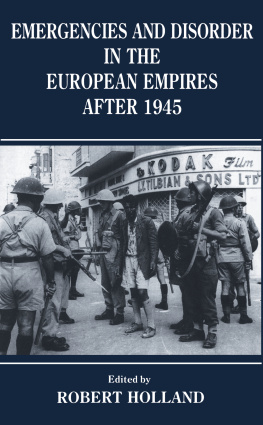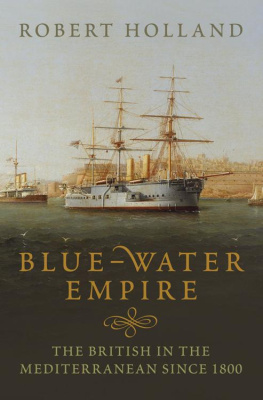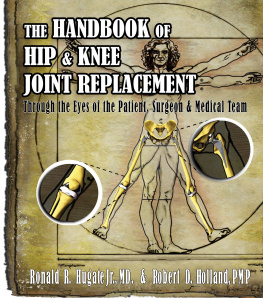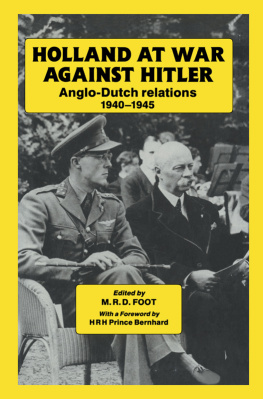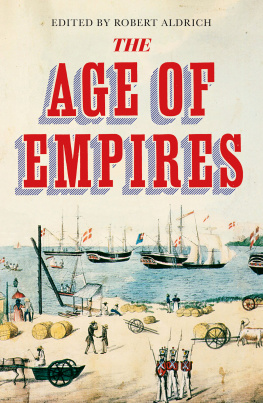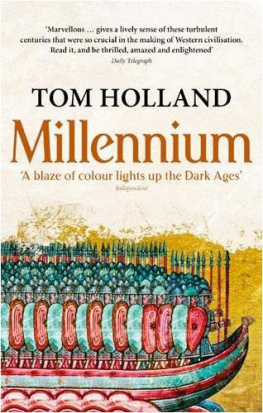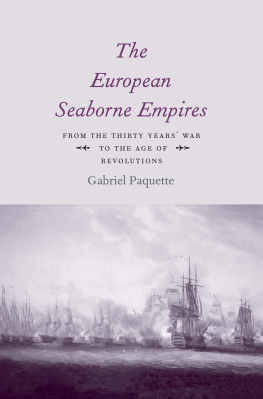First published in 1994 in Great Britain by
FRANK CASS & CO. LTD.
2 Park Square, Milton Park,
Abingdon, Oxon, OX14 4RN
and in the United States of America by
FRANK CASS & CO. LTD.
270 Madison Ave, New York NY 10016
Transferred to Digital Printing 2005
Copyright 1994 Frank Cass & Co. Ltd.
Library of Congress Cataloging-in-Publication Data
Emergencies and disorder in the European empires after 1945 / edited
by Robert Holland.
p. cm.
"... first appeared in a Special Issue on 'Emergencies and
Disorder in the European Empires after 1945' in the The Journal of
Imperial and Commonwealth History, vol. 21, no. 3 (September 1993)"
T.p. verso
Includes bibliographical references and index.
ISBN 0-7146-4516-8 (hard) ISBN 0-7146-4574-5 (pbk.)
1. World politics19451955. 2. World politics19551965.
3. EuropeColoniesAdministration. 4. InsurgencyHistory20th
century. I. Holland. R.F. (Robert F.)
D842.5.E44 1993
909.825dc20 93-34884
CIP
British Library Cataloguing-in-Publication Data
Emergencies and Disorder in the European
Empires After 1945
I. Holland, Robert
325
ISBN 0-7146-4516-8 (hb)
ISBN 0-7146-4574-5
This group of Studies first appeared in a Special Issue on 'Emergencies and Disorder in the European Empires after 1945' of The Journal of Imperial and Commonwealth History , Vol. 21, No. 3 (September 1993), published by Frank Cass & Co. Ltd.
All rights reserved. No part of this publication may be reproduced in any form or by any means, electronic, mechanical, photocopying, recording or otherwise, without the prior permission of Frank Cass and Company Limited.
Typeset by Regent Typesetting, London
Over the last ten years or so a number of comprehensive, and inevitably broad-brush, accounts of the 'end of Empire' have appeared. Less common have been attempts to isolate particular aspects or themes of the modern decolonization process; rarer still is work which does so on a comparative European basis. The current collection of essays arose from a conference which took place at the Institute of Commonwealth Studies in London from 29 June to 1 July 1992 under the aegis of the European Science Foundation's Network on the History of European Expansion, the focus of which was on the comparative analysis of those liquidations of European colonialism attended by widespread disorder and consequent (but invariably unavailing) repression.
Philippe Devillers, Martin Shipway reminds us in his analysis of events in Indo-China between 1945 and 1947, has commented with respect to this juncture in French imperial affairs that 'the archives have confirmed our worst suspicions'. What they certainly confirm, if the material collected here constitutes a general guide, is that the 'end of Empire' was anything but a smooth, easy and least of all foreordained phenomenon. If, to use what is now perhaps a quaint description, Continental participants were quick to point out to their British colleagues that colonial 'emergency' was a distinctively English conception, all the situations dealt with in this volume were undoubtedly emergencies in the generic sense, the outcomes of which were by no means as predictable as they seem in retrospect. In approaching this subject the first thing to screen from the mind is retrospective wisdom a disease, one suspects, especially prevalent and intellectually numbing in the practice of 'contemporary' history.
One central paradox which emerges from these treatments is that, during the run-up to the demission of European empire, the urge of the colonial rulers to control the pace and direction of events did not dissipate, but rather became more pronounced. Richard Rathbone's portrait heavy with bathos of the Gold Coast colonial polity equipping itself with the instruments and mentality of a security organism illustrates this very clearly. Nor was the trajectory of these multiple colonial evolutions necessarily the same. The likely future of the Gold Coast as a 'native', but still very much a guided, state was by no means the same as that of Nyasaland, meshed into an aspirant settler-Dominion in 'British' Central Africa, as John Darwin's account of events in 1958 underlines. Ultimately European decolonization, give or take a few chronological lags, panned-out on the basis of a single formula, the basic element of which was the more or less complete extrusion of alien superintendence. But there was a wide penumbra of other possibilities; and it is these competing if finally precluded scenarios which are in part the subject of the following pages.
However transparently simple it may seem, the dominating factor in all the individual circumstances studied below was the awareness on the part of colonialists, nationalists and those in-between that the world was changing with a frightening rapidity. Colonial rulers feared being swamped by dark and unaccustomed forces; their subjects often panicked at the prospect of being left behind in the struggle for succession. In analysing the crises which were sparked by these divergent responses a central difficulty is to disentangle what was spontaneous and accidental combustion from a conscious crafting of events. In putting the emphasis of his general analysis on the latter, Frank Furedi argues that the underlying goal of British 'Emergencies' the most that could be hoped for in confused and constrained conditions was a 'breathing space' within which to make secure and lasting dispositions for the future. Jean-Charles Jauffret, illustrating the same motive from an Algerian perspective, quotes the French commanding officer in command of the fierce pacification in the Stif region during 1945 warning the still-complacent colons that 'I have given you ten years'. In the ebbing life of superannuated empires, a decade, if not an eternity, is nevertheless a long time. The political discourse suffusing most of the incidents in this book is, by the same token, the most basic of all: that of survival.
The majority of the treatments in this collection concern the internal structure and dynamics of emergency situations. Petra Groen, for example, explores from a Dutch East Indian vantage-point the contradiction between colonial military tactics and a changing political environment. Taking a broad view, it is remarkable just how individually discrete and self-contained most of these troubled episodes were, bearing little or no relation to the categories of international politics which took shape after 1945. In this there were, at least allegedly, exceptions, and A.J. Stockwell judiciously examines the linkage in the British official mind between Chinese insurgency in Malaya and international communism. Something of the same problematic attached to objective argumentation on the one hand, and purely ritualistic, or even partially fabricated, rationales, on the other, is crucial to John Kent's description of British defence planning in the Middle East from 1945 to the eve of the Suez adventure. The picture he paints of British strategic articulation in what was indisputably a vital theatre is of a series of Chinese boxes the opening of which reveals nothing but a faded imperial prestige.
Breakdowns and emergencies, however, were not purely backward-looking or static affairs. They shaped the future and tilted the odds, not only between ruler and ruled, but between competing indigenous elements sometimes civil wars as well as colonial wars. In the example of Portuguese Africa, Patrick Chabal dissects the rich variety of nationalisms, and examines how the balance between them changed during the 'liberation struggle'. If in the Portuguese colonial context it was the modernizers who won and the ethnic traditionalists who mostly lost out, in Cyprus the reverse was largely true. In the latter case David Anderson's article evokes, amongst other things, how the changing pattern and bias of the local Security Forces intruded into the ethnic politics of the island, with significant implications for the future.


